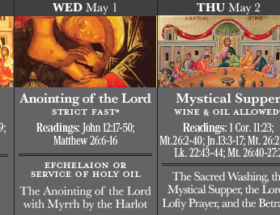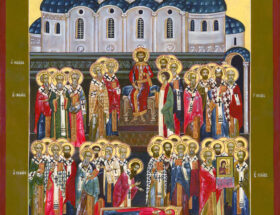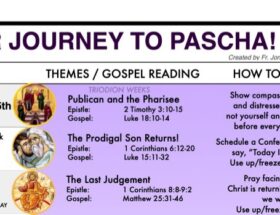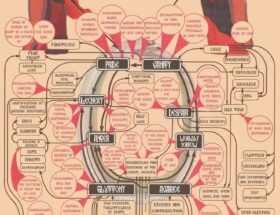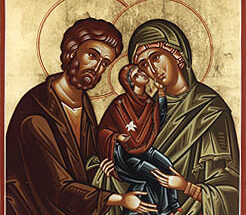Everything we have, including our wages, ultimately belongs to God. Though our income is given to us as a gift, it remains His, and we are merely stewards entrusted with its use. This is why financial stewardship is such a crucial part of our spiritual lives. Just as the good and faithful servant in the parable of the talents was expected to use his master’s money wisely (Matthew 25:14-30), we too are called to manage our resources in a way that serves God and His purpose. How we spend our wages is not just a reflection of our financial responsibility but a testament to our relationship with Him.
Although money itself is neither good nor bad, the way we use it can either draw us closer to God or entangle us in materialism and self-interest. The Orthodox Church teaches that our income is meant not only for our needs but also to serve others and further God’s Kingdom. By giving, sharing, and using our resources wisely, we align ourselves with the Gospel’s teachings and remain mindful of our calling to live humbly before God. Recognizing that our financial blessings are part of His greater plan allows us to approach money with gratitude and discernment, ensuring that it remains a tool for service rather than a source of spiritual distraction.
In doing so we are ensuring that we are living to the standard we have been given in the gospels. Having the following principles in mind when we approach dealing with our income will help us stay humble in our lives.
Providing for Our Needs with Gratitude
We are called to be good stewards of what God provides, using our income responsibly to meet the needs of ourselves and our families. This includes housing, food, clothing, and other necessities—but always with a heart of gratitude, avoiding excess or indulgence in luxuries that can lead to attachment to worldly comforts.
Giving to the Church and Those in Need
Tithing and almsgiving are central to Orthodox Christian life. Supporting the Church financially ensures that it can continue its mission, provide sacraments, and serve the community. Additionally, Christ commands us to care for the poor, widows, orphans, and those in distress. How we distribute our income should reflect our Christian love, recognizing that giving is not simply charity but an offering to God.
Avoiding Greed and Trusting in God
Money can easily become an idol when we see it as our ultimate security. The Orthodox approach reminds us that wealth is fleeting, and our true security is in God. While saving and planning for the future is wise, hoarding wealth or placing our trust in financial success rather than in God’s providence can lead to spiritual destruction.
The Orthodox View: Service, Self-Discipline, Not Self Indulgence
The traditional approach to handling our personal income is with self–discipline. The first question we should ask our self when we receive wealth is how to best serve God and others. We should not thoughtlessly burn through our income feeding the passions. Nor should we greedily hoard our money seeking but never achieving financial security, viewing possessing wealth as an end in itself. We should then focus on our basic needs of sustainance with self-displine also.
Here are some Orthodox Christian sources related to the responsible use of money and stewardship:
- The Holy Bible
- Matthew 6:19-21 – “Do not store up for yourselves treasures on earth… but store up for yourselves treasures in heaven.”
- 1 Timothy 6:10 – “For the love of money is the root of all kinds of evil.”
- Luke 12:33-34 – “Sell your possessions, and give to the needy… for where your treasure is, there your heart will be also.”
- St. John Chrysostom
- On Wealth and Poverty. Translated by Catharine P. Roth, St. Vladimir’s Seminary Press, 1984.
- “The rich exist for the sake of the poor, and the poor exist for the salvation of the rich.”
- St. Basil the Great
- Homilies on Social Justice. Translated by C. Paul Schroeder, St. Vladimir’s Seminary Press, 2009.
- “The bread you do not use belongs to the hungry; the garment hanging in your wardrobe belongs to the one who is naked.”
- The Philokalia (Writings of the Desert Fathers)
- St. Maximos the Confessor: “Avarice is the root of all evil, and it has many children.”
- St. Isaac the Syrian: “Give not the smallest place in your heart to love of money, for it will separate you from God.”


